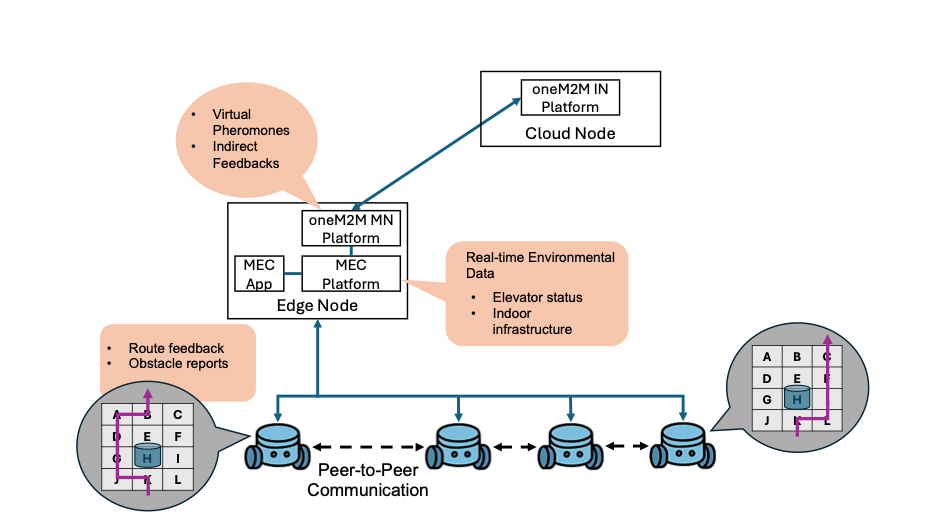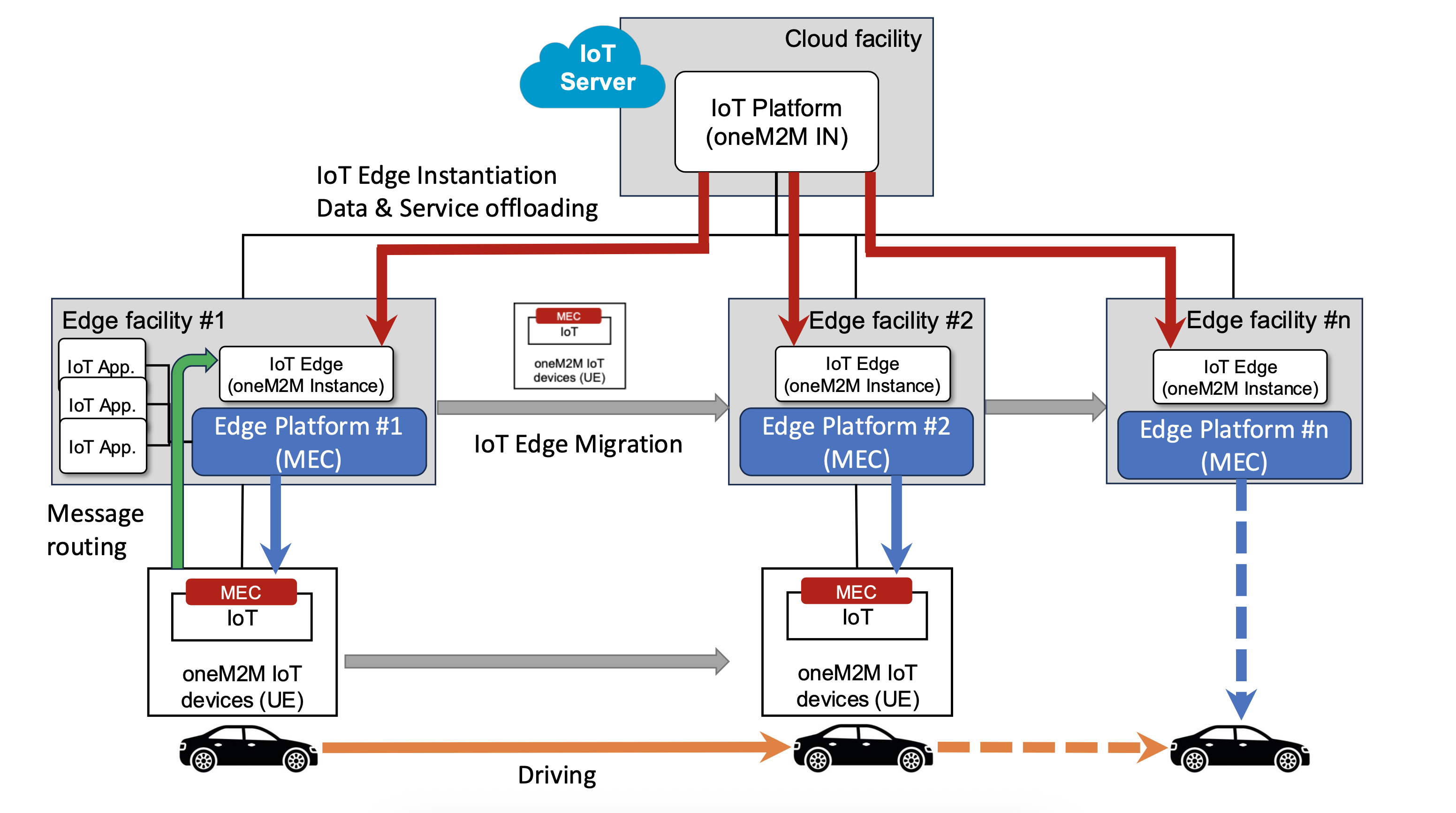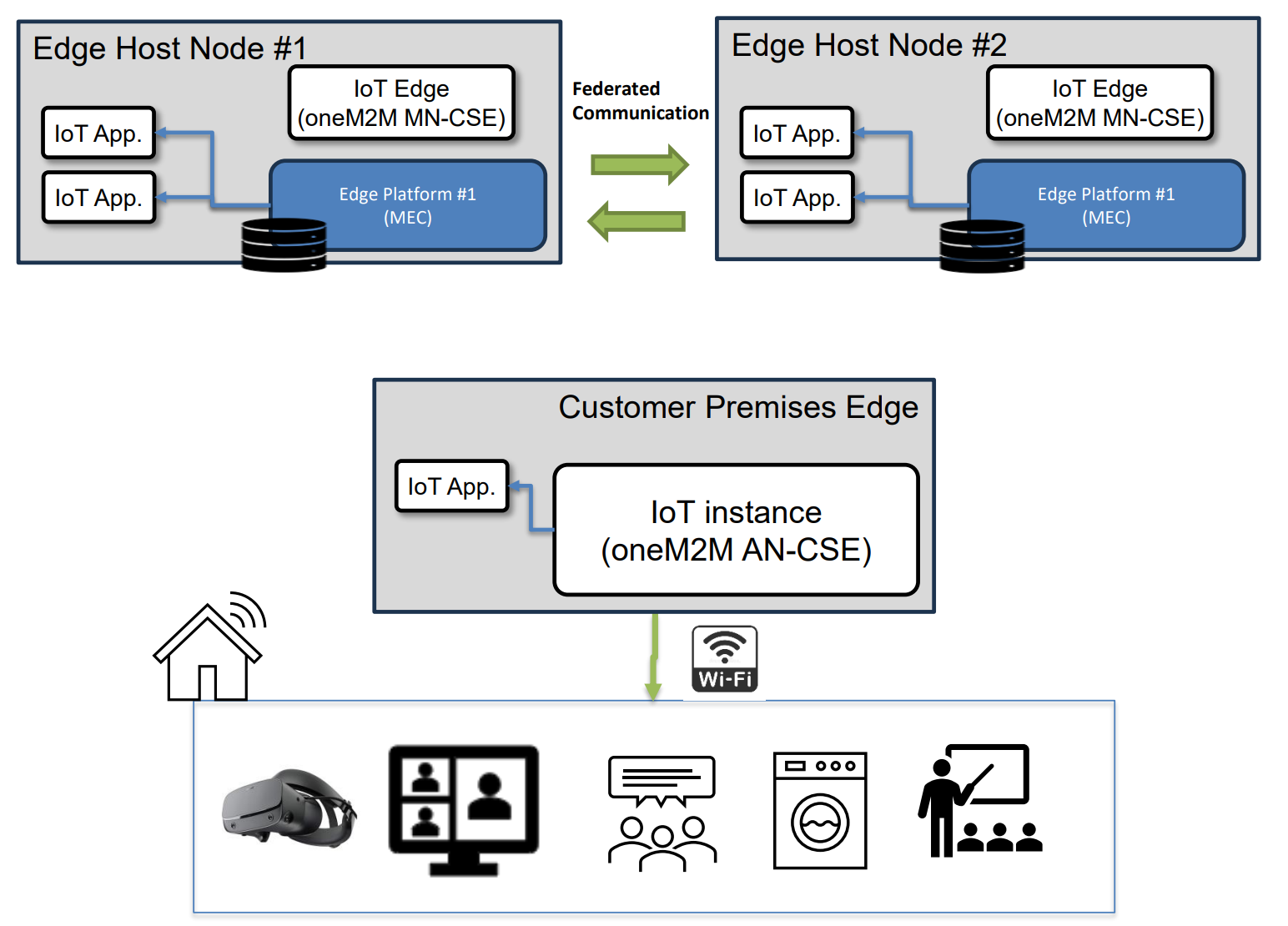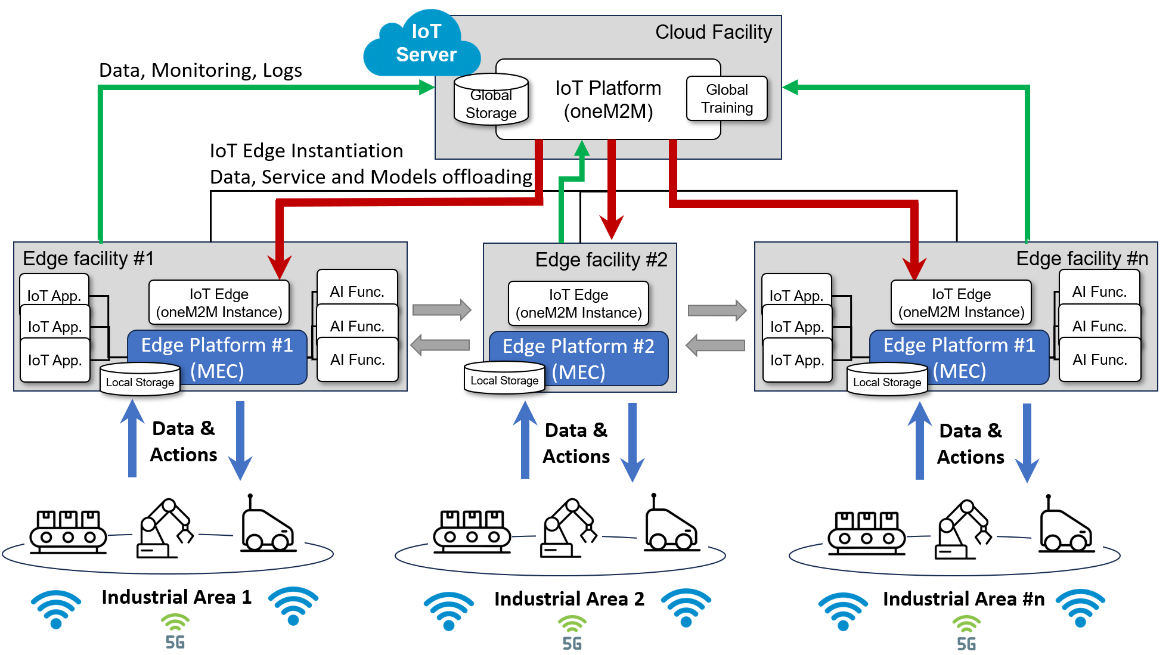
This clause explores a hybrid swarm-based autonomous delivery system inspired by the collective behavior of ant colonies. Swarm Computing is a decentralized computational model in which multiple agents collaborate autonomously by sharing information and interacting with each other, without requiring centralized control. Each agent makes decisions based on local observations and peer interactions, leading to emergent global behaviors capable of solving complex challenges such as pathfinding, task allocation, and optimization.
However, fully decentralized swarms can struggle when applied to real-world applications like delivery or energy management. Without any external guidance, they may face limitations in scaling, optimizing complex tasks, and adapting to dynamic environments. To address these challenges, this scenario integrates swarm agents with a cloud IoT platform and edge computing nodes, enhancing both performance and adaptability.
In this architecture, the edge IoT platform—implemented as MN instances in a oneM2M environment—plays a vital role. While autonomous delivery robots communicate and coordinate in a decentralized manner, the edge IoT node provides indirect feedback unavailable through local sensing alone. For example, the edge platform supplies real-time information about road conditions, elevator availability, indoor obstacles, and congestion, which individual agents may not perceive independently. This feedback empowers the swarm to optimize routes, avoid delays, and dynamically reassign delivery tasks in response to environmental changes.
Simultaneously, the MEC platform performs ultra-low-latency processing, ensuring that robots receive timely updates necessary for real-time obstacle avoidance and decision-making. As robots navigate complex delivery environments, MEC nodes analyze sensor data at the edge, supporting local computations for collision prevention and efficient routing.
Over time, this hybrid swarm system self-organizes into an efficient delivery network, combining decentralized autonomy with real-time edge support. Agents continuously adapt their behavior, share observations, and optimize their paths without the need for a centralized controller. This architecture demonstrates how swarm intelligence, enhanced by IoT platforms and edge computing, can solve complex logistics problems in dynamic urban settings.
Key Concepts:
Swarm computing is a decentralized model where multiple autonomous agents interact and collaborate based on local information to solve tasks independently of centralized control. An IoT platform running on edge infrastructure (e.g., MN in oneM2M) acts as an edge node that provides indirect feedback to the swarm by sharing contextual and environmental data. The edge infrastructure itself (e.g., MEC platform) serves as a low-latency processing layer that enables real-time data analysis and rapid adaptation to changes in the environment.
Enabling decentralized, adaptive, and responsive delivery services by combining swarm intelligence with MEC and IoT edge platforms.
The founding members of this initiative are CNIT, UNIMORE, xFlow, JK Consulting and Projects, FSCOM, Sejong University, Digital SME, Deutsche Telekom AG, Exacta GSS, Networks SRL, and Telecom Italia S.p.A. To register or learn more, contact estimed@etsi.org or visit https://estimed.etsi.org.
About ETSI
ETSI provides members with an open and inclusive environment to support the development, ratification, and testing of globally applicable standards for ICT systems and services across all sectors of industry and society. We are a non-profit body with more than 950 member organizations worldwide, drawn from 64 countries and five continents. Our members include large and small private companies, research entities, academia, government, and public organizations. ETSI is officially recognized by the EU as a European Standardization Organization (ESO). For more information, visit https://www.etsi.org.


